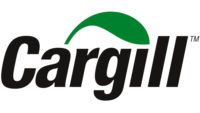Trans-fatty Acids Have Benefits?
Scientists in the U.S. explored the biology of trans-fatty acids and how it relates to human health and the dairy industry.
"In recent times, the medical focus has been on the association between the intake of trans-fatty acids and the risk of atherosclerosis, with current public health policy strongly recommending a reduction in the intake of trans-fatty acids," explained A.L. Lock and colleagues, Cornell University.
"This review considers recent legislation related to trans-fatty acids and examines available data highlighting potential differences in the biological effects of trans-fatty acids from ruminant fats versus industrially produced partially hydrogenated vegetable oils; these two dietary sources differ in both their amount and type of trans-fatty acids."
The researchers concluded, "The two key trans-fatty acids in ruminant fats, vaccenic and rumenic acids, have been shown to posses anti-carcinogenic and anti-atherogenic properties, and this review will discuss these findings in relation to health maintenance and disease prevention, especially those studies which have used naturally enriched dairy products to supply these bioactive fatty acids."
Lock and colleagues published their study in Australian Journal of Dairy Technology (“The Biology of Trans-fatty Acids: Implications for Human Health and the Dairy Industry.” Aust J Dairy Technol, 2005;60(2):134-142).
For more information, contact A.L. Lock, Cornell University, Dept. Animal Science, 262 Morrison Hall, Ithaca, NY 14853.
Source: Health Insurance Week
Looking for a reprint of this article?
From high-res PDFs to custom plaques, order your copy today!




